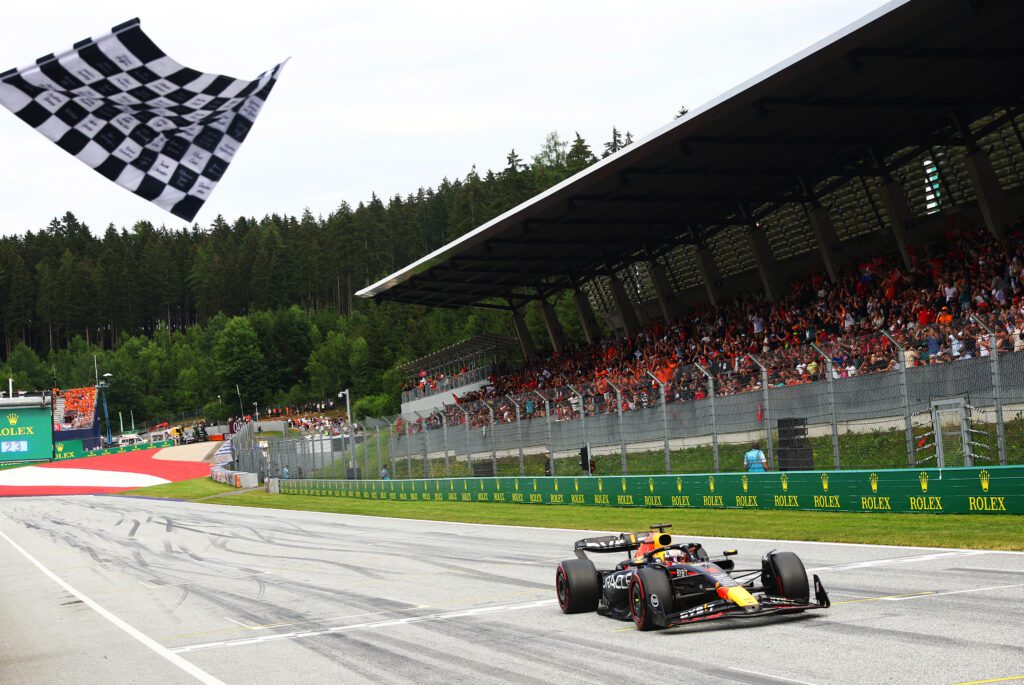Podium Life had the chance to chat with Michael Lamonato of F1 Strategy Report to chat all things F1, careers in racing and why he’d want to win Monaco.
Tell us a little bit about yourself.
I grew up in the (modern) home of the Formula 1 Australian Grand Prix in Melbourne — and as a kid I hated it. My mum took me out of school one Friday and it was too loud and the cars sped past too fast.
But eventually I grew up! As a good Italian boy I watched most of the 2008 season, usually on delay or recorded on VHS overnight, supporting Ferrari and Felipe Massa. They didn’t get it done, but the thrilling last-lap championship battle had me hooked. It was also that year I realised how broad and varied the F1 world is — it’s so much more than just cars on track.
I haven’t missed a race since, and over time I found ways to turn my passion for F1 into a job.

What advice do you have for others trying to break into racing?
Find your niche and hone it. In the case of Formula 1 in particular, there are so many new fans arriving to the sport looking for ways to engage with it that suit them. It’s a golden chance to define a new way to connect with F1.
And like anything, practice makes perfect. Write, talk, photograph — whatever it is that you want to do — to improve yourself, and don’t be afraid to ask for help or guidance. Motorsport is a relatively small community, and most people in it are welcoming of people who are genuine about wanting to join.
Favourite book?
I’m not sure I can pick an all-time favourite book, but sticking with the racing theme, among my favourites is Jackie Stewart’s autobiography. The man is a force of nature. There are few drivers who have established pivotal leadership roles for themselves on and off the track in the same way he has.
How do you prep for an episode of F1 Strategy Report?
Preparation starts on Friday with an analysis of practice times to get a sense of who’s going to be fast and which teams are experimenting with different set-ups in pursuit of better pace. All the cards are then laid on the table by qualifying.
How those cards are played in the race is what a Strategy Report episode is really about. In trying to answer how the race was won — when the answer isn’t just that Max Verstappen dominated from pole — I’ll look at race pace in individual stints, the timing of pit stops relative to main competitors and missed opportunities that could have changed the order.
Race strategy is the plans of one team meeting and adapting to the plans of a rival, which makes it very dynamic. Unpicking that is the goal.

What story or podcast are you most proud of?
There are generations of F1 fans for whom the sport is synonymous with the commentary of legendary English caller Murray Walker. Maybe ‘proud’ is not really the right word, but the podcast I was most personally satisfied to have done was to interview him in 2020. He was 96 years old at the time and had long stopped being able to attend races, but he was as sharp as a tack and his enthusiasm for the sport was completely undimmed — and more than 20 years after he hung up the microphone full-time, he still had that voice. It was surreal being able to speak with him.
What’s your favourite racetrack?
Suzuka Circuit, Japan — what a cool place. As much as it’s a great all-round test of car performance, above all it’s a real drivers track, and I think racing at circuits drivers love really makes a difference to the spectacle of a sport. Japanese motorsport fans are also among the best and most enthusiastic in the world, and the atmosphere they create is unique to the F1 calendar. It’s a highly recommended visit if you haven’t been.
If you could win the Indy 500, 24 Hours of Le Mans or Monaco GP, what would you pick and why?
Of course the F1 guy is going to pick Monaco! You only need to see a Formula 1 car thread the needle through the Swimming Pool to understand why this anachronistic, borderline undrivable street circuit is considered sacrosanct in the F1 community. The Indy 500 has sheer speed, Le Mans has physical endurance, but Monte Carlo has spectacle like no other place in world motorsport.
When you’re on the road for races, what are some of the travel essentials you can’t live without?
There are plenty of obvious work-related ones, but when I’m travelling long-haul to races — which is pretty much all of them from Melbourne — noise-cancelling headphones make a massive difference while flying, whether for getting work done or focussing on a movie or podcast to pass the time.
The humble universal adapter also ranks highly on the list after forgetting mine for a series of races last year — and, man, do retailers know they can gouge you on a new one!
Do you follow any other racing series?
MotoGP is criminally underrated for a premier motorsport category. The racing is almost always excellent and the riders have a borderline dangerous level of courage to do what they do. Coming from a car-racing background, I also find it fascinating to be able to actually see the riders — their body language, their physical attitude, the way their weight and position are intrinsic to the way they ride.
Any final words?
I’m all for F1’s American expansion, but here’s hoping Asia, the world’s most populous continent, gets some love in future expansions.

